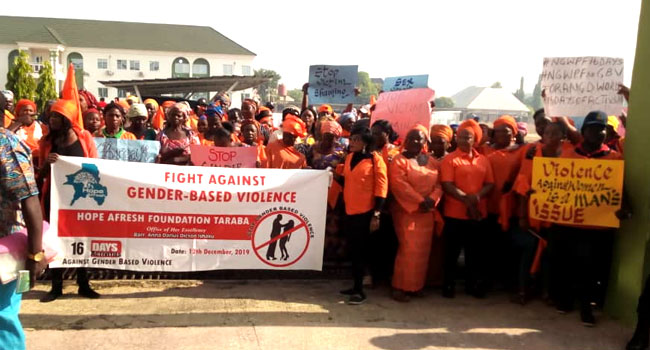Religious and cultural leaders spread across the nooks and crannies of Taraba state have been urged to assist in eliminating cultural practices that promote Gender Based Violence, GBV.
The call, as observed by our correspondent, was made in Jalingo, the state capital during a roundtable discussion organized by the Sultan Foundation and supported by the United Nations Women.
The event, which focused on faith and cultural leaders’ roles in ending GBV through advocacy and policy changes, was part of the Nigeria and West Africa LEAP project.
Amina Ali, the LEAP Project Officer, urged leaders to use their influence to discourage harmful cultural practices and promote positive social norms.
Amina highlighted the power of religious and cultural leaders to effect change, encouraging them to use their platforms to advocate for ending GBV.
She also emphasized the importance of educating communities about GBV through religious teachings, sermons, and scripture.
“Implementing religious teachings related to respect for human dignity, humanity, and kindness is crucial,” Amina suggested.
Read also: RDI decries Niger State govt for failing to recover bodies of Shiroro Mine incident
She also urged leaders to provide counseling services to GBV survivors and promote pre-marital counseling in their communities.
Haruna Aliyu, the Sultan Foundation’s Senior Programme Officer, echoed Amina’s sentiments, stressing the need for increased capacity and collaboration among government stakeholders and traditional and religious leaders to address GBV.
He emphasized that “all violence is harmful and has lasting consequences.”
The roundtable discussion, held at Galaxy Spot in Jalingo, saw significant participation from religious leaders of the two major religions and local monarchs, highlighting a united effort to combat GBV in Taraba State and beyond.






